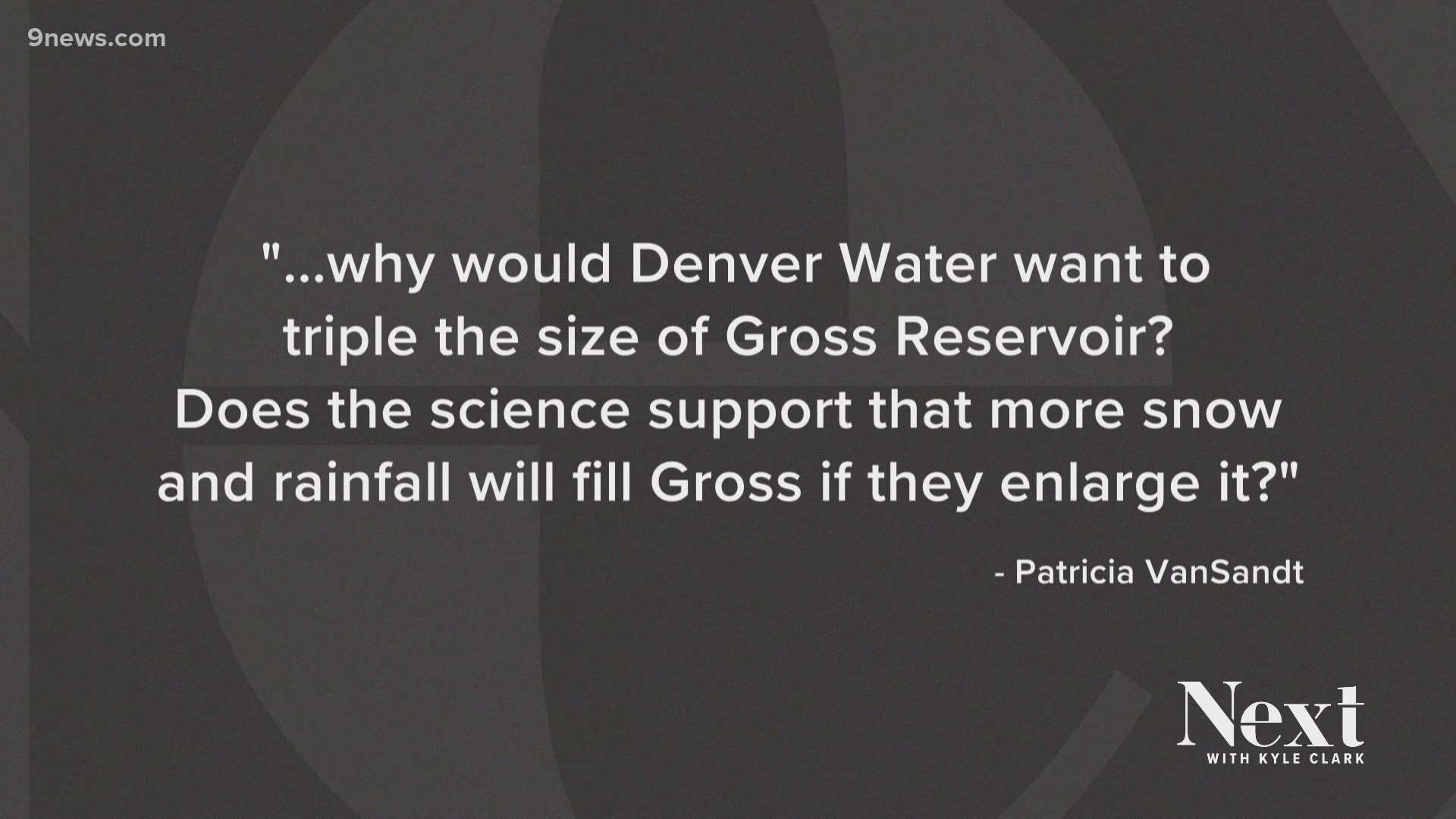DENVER — Denver and Boulder are in a water fight that's going to court.
Denver Water is suing Boulder County, accusing the county of trying to meddle in a planned expansion of the Gross Reservoir that sits southwest of Boulder.
After nearly two decades of planning, federal regulators gave Denver Water final approval last year for the project that will raise Gross Dam by 131 feet, tripling the size of the reservoir.
The reservoir has been storing a small portion of Denver's water for more than 65 years. Project manager Jeff Martin said there are essentially two reasons for it: accommodating the projected half-million more people in Denver by 2050 and preparing better for climate change.
Denver Water is concerned that too much of their storage is concentrated in one area; 90% of reservoir capacity is in their south collection area. Gross Reservoir is the only reservoir in the northern collection area.
"And so, when we look at our system it's not very resilient. We would like to have more water in our north system so we can weather either times of drought, or extreme catastrophic incidents like a wildfire, and make sure that we have a balance so we can provide water where we need it, when we need it,” Martin said when he spoke to 9NEWS in 2020.
Denver Water is accusing Boulder County of slow-walking permits to derail the expansion and is asking a district court to force Boulder County to move forward.
According to Denver Water, the reservoir built in the 1950s “was designed to be raised,” though one Next with Kyle Clark viewer asked if current conditions support an expansion. Specifically, Patricia asked if there is enough extra snowmelt and rainfall now to fill a bigger reservoir.
Martin told Next they are confident enough water is going to fall on the west side of the Continental Divide, and at that point, it will be diverted to the east side of the Divide to Gross Reservoir as part of the Colorado River Cooperative Agreement.
"We see dry years and we see really wet years," Martin said. "We've had many really wet years in the past in which we would have no problem filling it, and even [in a] normal and slightly dry year, we're not going to have an issue filling Gross Reservoir," Martin said.
This would be the last time Denver Water can expand Gross Reservoir with a trans-mountain diversion because of the agreement that also keeps Denver Water from growing to include more of the suburbs. Future growth in water needs, Martin said, will be from density in their existing territory, so-called vertical growth.
“This is the last West Slope diversion Denver Water will have. And second, the agreement itself makes an agreement to our partners that Denver water's not going to grow. We have a boundary, and we expect growth, but it's going to be vertical. Our geographical region is set,” he said.
In extreme situations, water restrictions help manage supply for Gross and all other Denver Water reservoirs, as well.
Denver Water hopes to start construction next year. Work would likely last through 2027.
SUGGESTED VIDEOS: Full Episodes of Next with Kyle Clark

